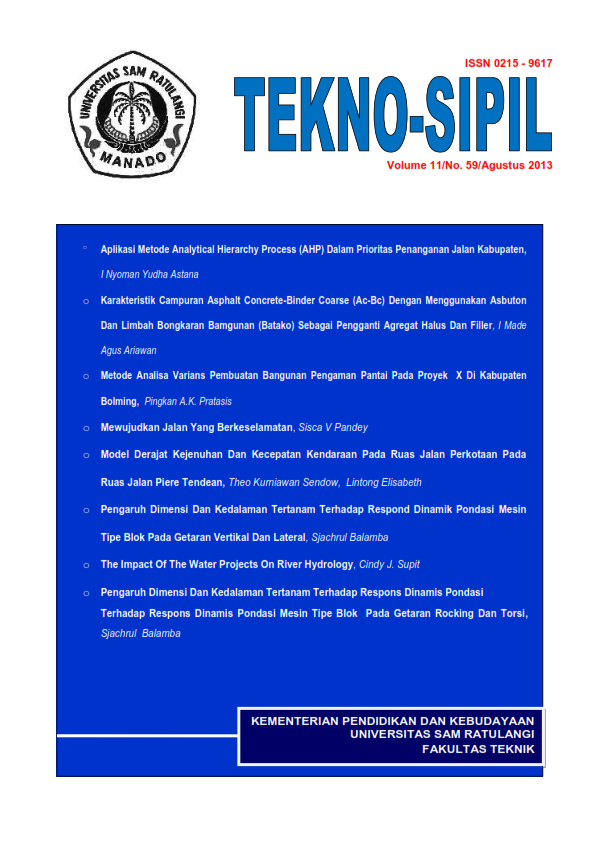THE IMPACT OF WATER PROJECTS ON RIVER HYDROLOGY
DOI:
https://doi.org/10.35793/jts.v11i59.4308Abstract
Water project construction such as dams is one of the major activities in basin development and utilization. The reservoirs are usually located in the headstream with large storage capacity for main function of water storage, water supply and flood control. The impact of water projects on river hydrology, surrounding environment and ecology are important topics in river basin management and environmental protection.Through this research, the model has shown to be able to simulate the hydrological process in Kase River basin. The existences of Hokuzan dam reservoir and Kase River dam reservoir in this area resulted in reductions in annual and peak stream flow rates in the watershed because of the storage of dams. Wide surface areas of reservoirs can evaporate higher than natural channels. These dams seem to result in decrease of average annual discharge by 3.68 % from only Hokuzan dam scenario, and decrease 4.49 % from the no dam scenario.
A developed management tool for water resources seems to be a new approach to water environment improvement in Kase River basin. Integrated water management of Kase River basin including management of multiple dam’s reservoir shows possibility for satisfaction of water quantity demand both in the irrigation period and non irrigation period. This integrated water management also gives feasibility for water supply to prevent eutrophication at the creek network downstream.
This research will be a useful step for the future integrated basin management and expected as the foundation for the sustainable development of Saga City in the future.
Keywords: Water project, river hydrology

